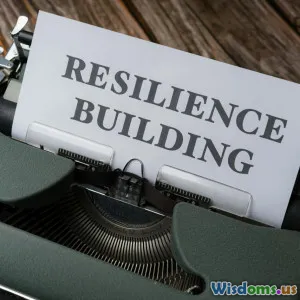
Skills for Successful Leadership
9 min read Explore essential skills that define successful leadership in today's career landscape. (0 Reviews)
Skills for Successful Leadership
Introduction
Leadership is often heralded as a vital component of success in today's competitive world. Whether you are managing a small startup or leading a vast corporation, the ability to guide, inspire, and influence others can set you apart. According to a McKinsey report, organizations with effective leaders outperform their counterparts in productivity and employee engagement. But what constitutes successful leadership? The answer lies in a unique blend of skills that every aspiring leader can cultivate.
In this article, we will explore essential skills for successful leadership that can enhance both your career and personal life. From communication to emotional intelligence, we'll delved into ten critical skills that can help leaders make a significant impact.
Essential Leadership Skills
1. Communication
Effective communication is the cornerstone of leadership. A leader must convey ideas clearly and motivate their team to ensure everyone is on the same page. In a survey conducted by the Apainz Healthcare Consulting, 86% of employees cited a lack of effective communication as a primary reason for workplace failures.
Leaders should work on:
- Active listening: Encourage feedback and show consideration for team members' opinions.
- Clarity and conciseness: Articulate messages effectively to prevent misunderstandings.
For example, consider the CEO of Starbucks, Howard Schultz, who is known for his hands-on leadership style and excellent communication skills that foster a strong team-oriented culture within the organization.
2. Emotional Intelligence (EI)
Emotional intelligence refers to the ability to recognize, understand, and manage our emotions while being empathetic to others. Daniel Goleman, a psychologist and author, highlights that EI accounts for nearly 90% of what sets high performers apart from peers with similar technical skills.
Leaders can benefit from:
- Self-awareness: Understanding one's strengths and weaknesses helps tailor leadership styles to the team's demands.
- Social skills: Building rapport announces openness, authenticity, and approachability.
For instance, Netflix emphasizes the importance of emotional intelligence in their hiring process, which equips their leaders with the necessary tools to inspire and motivate teams.
3. Adaptability
In today's fast-paced world, adaptability is essential for effective leadership. A successful leader must embrace change and help their teams navigate through uncertainties seamlessly. According to a study by the World Economic Forum, adaptability, along with critical thinking and creativity, is deemed a top skill for success in the future job market.
Tips for building adaptability:
- Be open to feedback and new ideas.
- Regularly assess and refine your strategies to respond proactively to changing environments.
An exemplary leader in adaptability is Satya Nadella, CEO of Microsoft, who transformed the organization's culture to one that prioritizes learning and resilience.
4. Decision-Making
Effective leaders are defined by their decision-making capabilities. The process often involves balancing data, intuition, and team input. Ivy Lee, a pioneer in public relations, proposed a simple yet impactful framework for decision-making that led to improved efficiency.
Key elements of decision-making include:
- Assessing risks and rewards: Evaluating potential outcomes helps in making knowledgeable choices.
- Consultation: Seeking diverse opinions prevents groupthink and makes for a well-rounded decision.
Notable companies like Amazon thrive on their leaders who emphasize rigorous decision-making processes. Jeff Bezos is known for advocating the practice of making decisions based on facts and data rather than opinions.
5. Vision and Strategic Planning
A leaders' ability to set a strategic vision is crucial. They must anticipate future trends while also inspiring others with a clear pathway to achieve collective goals. Leaders of companies like Tesla, led by Elon Musk, are well-known for their strong vision driving long-term strategic planning.
Ways to craft a compelling vision:
- Foster inclusivity when creating and communicating goals.
- Create measurable milestones to track progress toward achieving long-range aspirations.
6. Team Building and Motivation
Elevating and enabling team members is perhaps one of the most pivotal roles for a leader. According to research from Gallup, effective managers inspire high engagement and morale among their teams, further driving company productivity.
To improve team building:
- Celebrate achievements and recognize individual contributions.
- Encourage professional development by providing learning opportunities.
Innovations like Google's Project Aristotle demonstrate how establishing psychological safety in teams leads to effective collaboration and innovation.
7. Conflict Resolution
Leaders must master the art of conflict resolution, handling workplace disputes skillfully. Patrick Lencioni, an expert in organizational health, emphasizes that recognition and addressing conflicts can lead to stronger relationships and more effective teams.
Tools for effective conflict resolution:
- Adopt a mediation approach that encourages discussion, understanding, and compromise.
- Listen to both parties to arrive at a consensus on the issue.
Leaders like Indra Nooyi, former CEO of PepsiCo, fostered team cohesion by effectively resolving conflicts and maintaining morale during challenging times.
8. Integrity and Ethics
A successful leader stands firm with their values and ethical principles, which builds trust among their team. Integrity in leadership results in sustainable working relationships and a healthy organizational culture. For example, Paul Polman, former CEO of Unilever, demonstrated exceptional integrity by executing practices focused on sustainability.
Demonstrating integrity involves:
- Upholding ethical standards consistently, fostering trust.
- Being open about mistakes and learning from failures.
9. Creativity and Innovation
Leadership today requires a level of creativity that pushes boundaries and encourages innovative problem-solving. General Electric (GE) focuses on fostering an 'innovation culture,' leading to diverse ideas and solutions.
To enhance creativity as a leader:
- Encourage team brainstorming sessions.
- Create a culture that embraces experimentation even if failure happens.
10. Networking
Building a strong network can greatly propel a leader's career forward. Networking enhances collaboration and opens up opportunities that facilitate growth. A good leader should cultivate relationships that empower, support, and enrich others' capacities.
Tips on establishing a robust network:
- Attend industry-related events and conferences.
- Utilize platforms like LinkedIn to engage with peers and industry leaders.
Conclusion
Successful leadership hinges on a mix of various skills — communication, emotional intelligence, adaptability, decision-making, vision, teamwork, conflict resolution, integrity, creativity, and networking. Each skill directly impacts one's ability to guide and influence others positively, making it not just essential in your career but also influential in shaping your personal life.
By honing these skills, aspiring leaders can find themselves empowered to build teams that thrive and organizations that succeed, paving the way for effective leadership in a rapidly evolving world. Embrace the challenge of self-improvement, and watch as you grow into a leader who not only succeeds but inspires others along the way.
Rate the Post
User Reviews
Popular Posts




















